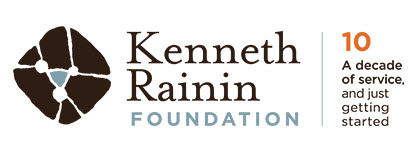
Infectious Disease investigators are called to submit their stellar research proposal addressing to identify a potential microbial link to Alzheimer’s disease. All application submissions must be narrowly focused on elucidating the possible roles of infectious agents in the causation of Alzheimer’s disease. The awards will support innovative research including basic, clinical, and/or non-traditional approaches.
PRIMARY PROGRAM OBJECTIVES:
- To obtain evidence that an infectious agent or microbial community is correlated to Alzheimer’s disease.
- To promote novel research in the field of microbial triggers for Alzheimer’s disease.
PDF of RFA
ELIGIBILITY REQUIREMENTS:
- Both members and non-members of IDSA are encouraged to apply. This includes established investigators, academic and health professionals in all disciplines and health-related professions.
- PhD and MDs are welcome to apply.
- Interdisciplinary research is encouraged, including collaborations between experts in Alzheimer’s research and infectious diseases.
- Clinical and basic scientists are encouraged to apply.
- International applications are welcome.
Application Deadline: November 30, 2019 at 11:59 PM ET
Research Fields: Infectious Disease, Aging, Alzheimer’s

The spirit of the Kenneth Rainin Foundation Synergy Award is to forge partnerships in the field of Inflammatory Bowel Disease (IBD). Collaboration is a key requirement of our Synergy Award. Throughout the application, it is essential to demonstrate that the end product of the proposed research could not be achieved without collaboration.
Application Deadline: September 10, 2019
Research Fields: Gastro, Inflammation, Arthritis

The Thrasher Research Fund has been awarding grants for children's medical research for over 40 years. The purpose of the E.W. "Al" Thrasher Awards is to improve children's health through medical research, with an emphasis on projects that have the potential to translate into clinically meaningful results within a few years.
Ideal applications address significant health problems that affect children in large numbers or that have severe outcomes, offering the potential for practical solutions to these problems. Such solutions should be innovative and have the potential for broad applicability with low financial and/or technical barriers to implementation. Hypothesis-driven research is preferred over exploratory, hypothesis-generating research. Projects with a shorter distance to clinical applicability are given priority.
|
Full Proposal Review
|
Timeline
|
|
Submission of Proposal
|
Up to one year after Concept paper approval
|
|
Internal review of Proposal and Identification of Reviewers
|
1-3 weeks
|
|
External Peer Review
|
5-8 weeks
|
|
Reject or invite PI to respond to reviewers
|
1 week
|
|
PI Response
|
2-4 weeks but can vary depending upon raised issues
|
|
Final peer review recommendation
|
2 weeks
|
|
Staff submits Proposal and reviews Committees
|
First part of February and first part of August
|
|
Final Decision
|
Late March, Late September
|
Research Fields: Pediatrics, Public Health

The foundation makes grants to US based qualified charitable organizations. To date we have funded organizations that address the following areas of interest:
- Environment (US headquartered organizations operating programs in the US or elsewhere in the world)
- Human Services
Apply Here
Application Deadline: October 31, 2019
Research Fields: Environmental Health, Human Health

Research grants are available to young scientists and productive senior scientists working at accredited institutions in the United States. Applications will be judged on the scientific merit and the innovative aspects of the proposal as well as on the competence of the applicant. Research grants of up to three years will be provided. A renewal grant with a maximum of two years is possible, but it will be awarded on a competitive basis. Research grants will not be awarded to investigators who have already received, or expect to receive, substantial support from other sources, even if it is for an unrelated purpose. Research grants normally range from $30,000 to $75,000 per year.
Spring Session
Letter of Intent deadline October 1
Issuance of Application materials December 15
Application deadline February 15
Notification of Grant awards May 15
Research Fields: Life Sciences